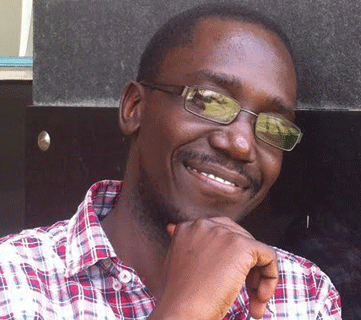
EVERY student wants to pass, but very few students enjoy studying. In fact, if we had a choice none of us would study.
A few weeks ago, one of my students came to me frustrated. “Sir, how can I improve my studying? I read a lot, but I realise that I just can’t remember what I would have been reading,” she said. “At the end of the day I get frustrated as I end up not seeing the point of studying.”
As we exchanged some ideas on improving her study skills, I quickly realised that many a student is keen on getting good grades, but very few of them understand that good grades are not simply a result of plenty of reading, but a result of proper study habits.
Furthermore, many a teacher will stress the importance of studying, but few take time to educate on how to study.
During my high school years, my dad and I didn’t see eye to eye when it came to my study habits. He preferred to see me seated by my desk all day long studying.
For him, to see me with books in my hand from dawn to dusk, and even burning the midnight candle, was the key to academic success.
However, there are a few fundamentals about how the brain works that each one of us needs to master in order to have meaningful study time.
Firstly, we must realise that the brain is designed to receive and retain different types of information differently. For instance, the reason why it is easier to remember pictures as opposed to written words is all a result of how the brain is designed.
- Chamisa under fire over US$120K donation
- Mavhunga puts DeMbare into Chibuku quarterfinals
- Pension funds bet on Cabora Bassa oilfields
- Councils defy govt fire tender directive
Keep Reading
Research has shown that our brains remember visual images easily and better than words. As a result, if we are to study better, we must take advantage of this inherent strength of the brain.
A good way of doing this is to organise your reading notes into visuals, so that you associate different ideas with shapes.
As a result, instead of having a long list of written points, you can illustrate your ideas on a piece of paper using various shapes and then interlink those ideas with arrows to show how these ideas relate with each other.
You can even liven up your ideas by distinguishing them with colour. By so doing, you create a colourful visual impression of what you are reading and this will make it easy for you to remember and understand it. So tip number one, in order to make your study time effective, you must encode what you are studying into a form that your brain will easily remember.
Secondly, you need to realise that your brain works best at particular times of the day. This, however, varies from one person to another. I am a morning person and I study best in the mornings. I am most likely to remember what I read yesterday morning than what I read yesterday afternoon.
It is, therefore, important for each student to understand the times when their brain is at its peak and then maximise on that time.
Once you do that you will realise that you may need less time for study yet being more effective during that study time.
Another important variable when it comes to study time is the environment. Throughout my life, I have found the library as the last place for me to engage in serious studying.
It is just too quiet for my liking. When I study, I prefer to have music in the background.
However, I have friends and colleagues who have found the library or any other quiet place as the most conducive environment for them to study. Whatever the case, in order to have effective study time, each one of us must find the environment that suits us best.
Not too long ago, I came across Michael Gelb’s audio presentation on mind mapping. In it, he suggests that in order to improve retention of what we read, we must sleep over it.
Simply put, just before going to bed, read through your materials and then go to sleep.
You will realise that when you wake up in the morning, your brain will have organised the information that you were reading and interestingly, even those seemingly difficult concepts you were failing to understand will be much clearer.
Over the years, I have put this into practice and it has never failed me. I believe it will also work for you too.
Another effective solution is to study in a group. Group study allows for sharing of ideas and clarifying of issues easily and better than when you are studying alone.
As a matter of fact, iron sharpens iron and what better way to sharpen yourself than to share your ideas and questions with others. As you do so, you will realise that you will get better insights to the subject that you are trying to understand.
Lastly, all work and no play makes Jack a dull boy. Contrary to popular belief that there’s no time for play for those who are serious with their school work, play is necessary for anyone who is interested in improving the performance of their brain.










